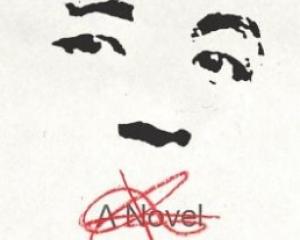
He's long dead, of course, but anyone who can cope with the combination of Jane Austen and vampires, or Niall Fergusson and his imitators penning counterfactual histories, should be able to suspend disbelief long enough to swallow a satirical novel based on the premise of Adolf Hitler waking up in a Berlin park in 2011.
Timur Vermes leaves the ending open, and the plot is quite simple. Hitler Van Winkle wakes up in modern Berlin, where he is taken to be a very superior Hitler impersonator. Treated as a joke, he finds himself put on television, where his career takes off. The louder he rants, the higher his ratings climb. Who needs U-boats when you have YouTube?
By focusing on Hitler's reaction to modern politics and the 21st -century media, Vermes torpedoes two easy targets. The TV crowd are lazy, grasping and shallow, more benign than Goebbels but no less manipulative. References to that little dwarf and to Leni Reifenstahl keep the comparisons going.
Although Vermes does not name any modern leaders, they are easy to identify. This must be former chancellor Kohl: ''the man looked like Goering after a double dose of barbiturates''. And this is Angela Merkel: ''a chunky woman with all the confidence and charisma of a weeping willow''.
I kept thinking of that much earlier satire, Gulliver's Travels. Hitler, the outsider, finds us more like Yahoos than Houyhnhms.
Although he's now more than 120, Hitler hasn't moved on from the world of 1945. Puzzled by the self-service shops of today, he calculates their lower staffing levels might be good for an extra three or four divisions at the front. Is that thing called www that he sees advertised everywhere a new name for Strength Through Joy?
At first he's more shocked than the modern Berliners, bamboozled by the sight of well-dressed women scooping up dog poo in plastic bags. A kindly magazine seller gets him a pair of ''genes'' to wear (his uniform smells of petrol, you know) and when the man says ''hasta la vista, baby!'' der Fuhrer decides ''this modern German would take some time to accustom myself to''.
The book, which is told in the first person, dragged in a few places, but I'll be charitable and assume Vermes was getting into character - the real Hitler could go on for hours.
Readers with a good understanding of the Nazi era will instantly get the many digs, but if you don't know your Donitz from your Funk, translator Jamie Bulloch's comprehensive narrative glossary sets it all out.
Some people have worried this book might humanise Hitler. If it does in places, that's not necessarily bad, since our highly caricatured view of a ranting madman obscures the real lesson we need to draw from history: how could highly civilised people give Hitler a platform for evil? Could something like it happen again?
But Vermes' Hitler remains a monster. Even if we can laugh at him deciding the Greens are closest to his politics, Hitler remains anti-Semitic and violent, asking of the English: ''How many more bombs would we have had to drop on their cities before they realised that they were our friend?''
- Gavin McLean is a Wellington historian.


